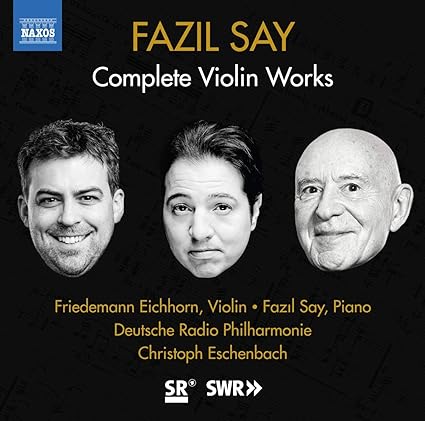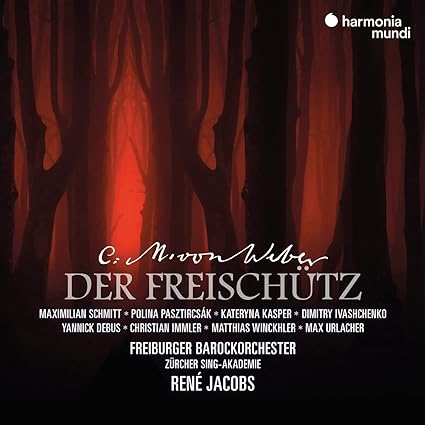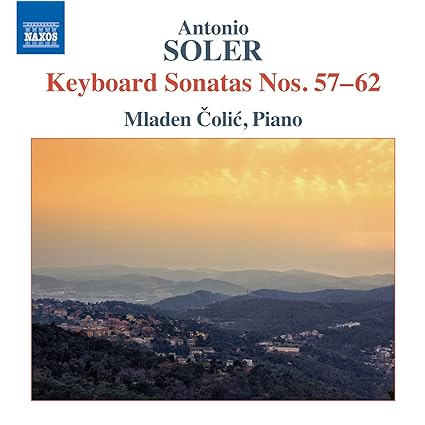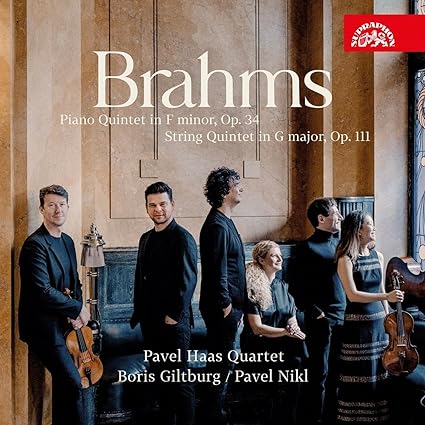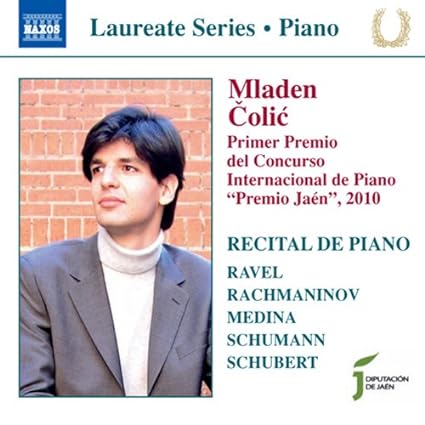Mladen Čolić’s Soler on modern grand disc on Naxos stands as the highpoint of that series so far, so I just had to hear his debut solo recital on Naxos. Unfortunately, the first thing one notices is the sub-par sound, which is close and has limited lower register weight.* Fortunately, the second thing one notices far outweighs sound quality: the playing. Čolić brings fresh new insights to the well-known music on this recording, and he introduces a corker of a new work. That new work is
Tardes de almazara by Juan Medina, a just shy of ten-minute flurry of notes, written in a sort of avant-garde style, with kinda quotations and allusions to other composers. The piece flies by, almost overwhelming the listener with musical invention and goodness.
The rest of the disc is given over to Ravel, Rachmaninoff, Schumann, and closes with Schubert’s D760. The Ravel
Valses nobles et sentimentales starts almost rough and clunky, but, partly aided by the bass-light sound and Čolić’s less generous than normal pedaling, one soon begins to hear every little detail. As in his Soler, Čolić tinkers with every aspect of playing, all the time, with very fine dynamic control and micro-tempo shifts everywhere. He maintains an appropriate, or almost appropriate but just kind of off rhythmic style. The disc then moves on to three of Rach’s Études-Tableaux, and Čolić delivers an idiosyncratic musical x-ray, where individual note accents and accelerations and decelerations are performed just because, and they work. They do not sound like any other Rach recordings I have heard. Čolić then does something basically miraculous: he makes me
like Schumann’s Toccata, a piece I typically merely tolerate. Some of the playing sounds off, as if he played the wrong thing, until he repeats the playing, and his little touches and forward momentum combine to compel more than any other version I’ve heard.
The disc closes with the
Wanderer Fantasie, and here the lack of bass heft limits scale, precluding a quasi-orchestral feel. What one gets in the single-track work is a piano-scaled rendition where some of the dynamic contrasts are muted, but the clarity of voices at times completely dominates the listening experience. The tempo shifts, sometimes abrupt yet precisely controlled, can nearly startle. The theme and variations movements doesn’t quite display a Kirschnereit level of differentiation, but the listener is keenly aware that the movement is a theme and variations. As compelling as all this is, it is when Čolić slows down and plays quietly – oh so very quietly – that one is treated to something even better, with the quality approaching that of Jean-Rodolphe Kars. Čolić does so much in the piece, and there is so much to enjoy, that one sits nearly gobsmacked. It makes for a supremely fine end to a magnificent recording.
* What is it about piano recordings made in Spain? Almost every one I have heard, from any pianist on any label, has been far from SOTA, though ultimately listenable. Fortunately, every sub-par sounding disc has displayed exceptional musical quality, which is the right trade-off.



